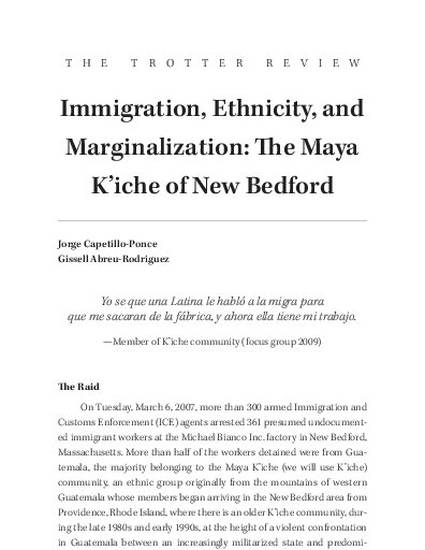
On Tuesday, March 6, 2007, more than 300 armed Immigration and Customs Enforcement (ICE) agents arrested 361 presumed undocumented immigrant workers at the Michael Bianco Inc. factory in New Bedford, Massachusetts. More than half of the workers detained were from Guatemala, the majority belonging to the Maya K’iche (we will use K’iche) community, an ethnic group originally from the mountains of western Guatemala whose members began arriving in the New Bedford area from Providence, Rhode Island, where there is an older K’iche community, during the late 1980s and early 1990s, at the height of a violent confrontation in Guatemala between an increasingly militarized state and predominantly Mayan guerrillas and civilians. Once a number of male K’iche became established in New Bedford, the immigration flow began to include women and children.
Poor and unskilled immigrants have few options but to take lowwage jobs and settle in declining urban areas. In the case of the K’iche, as it became clear in our fieldwork, their undocumented status in addition to a lack of formal education compounded their marginal status and led to their acceptance of poor working conditions and dead-end jobs in the fish-packing and apparel industries (the Michael Bianco factory being an example) that have survived a prolonged economic decline in New Bedford.
Available at: http://works.bepress.com/jorge_capetillo-ponce/13/
